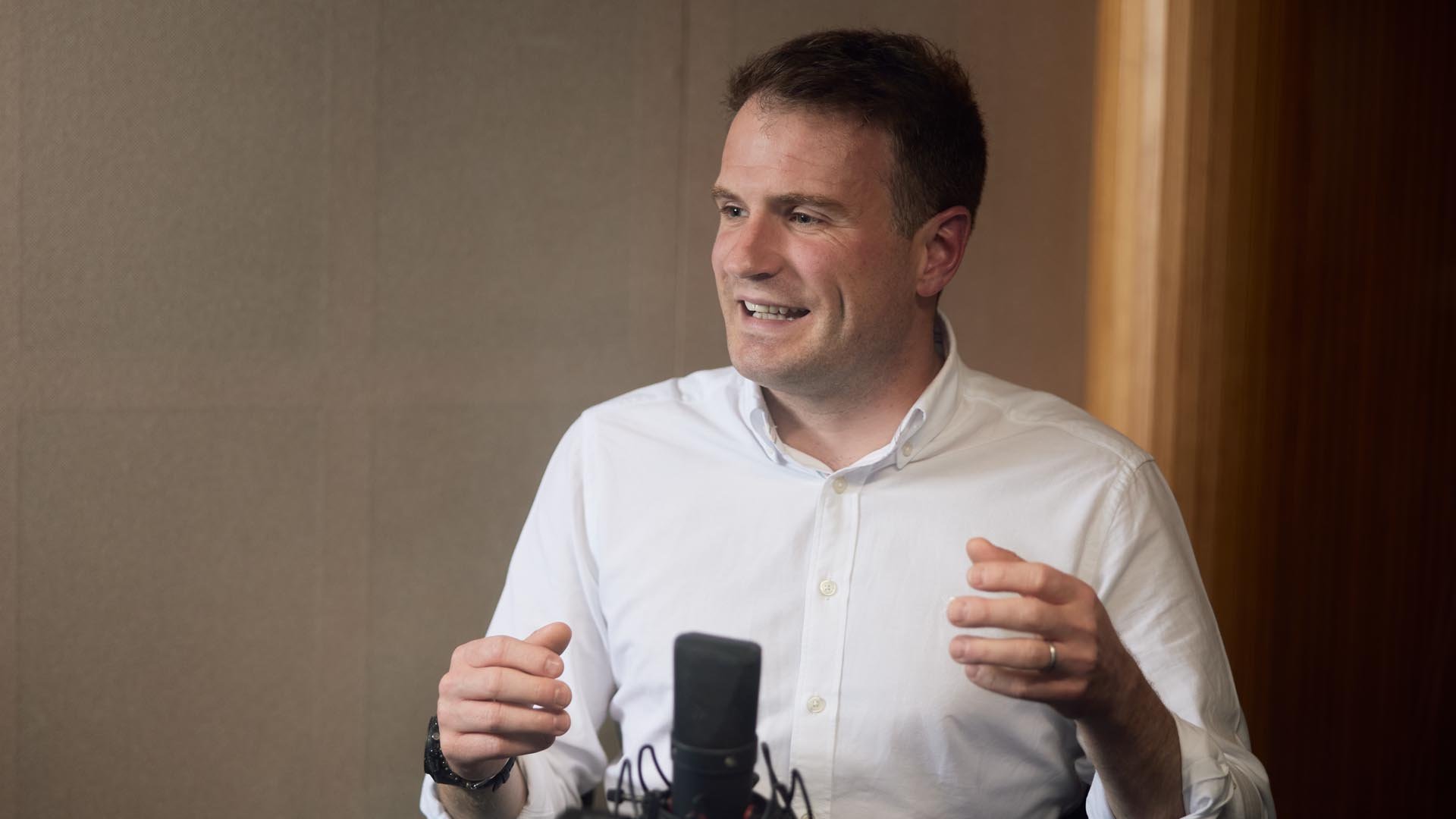
All investment strategies have the potential for profit and loss, your or your clients’ capital may be at risk.
In 2015, The Guardian ruined Christmas – at least for shareholders of Sports Direct (now Frasers Group). The company’s value halved over the festive season after the newspaper’s investigation revealed a human rights scandal at the high-street retailer. Sports Direct was paying below minimum wage for working in appalling conditions.
In the couple of years prior, ambulances were dispatched to its facilities more than 80 times, including a disturbing case of a woman giving birth in the headquarters’ bathroom. The chief executive was later charged with a criminal offence for only giving union members 15 minutes’ notice of redundancy.
As more news emerged, the stock continued to grind lower, reaching a nadir in mid-2016 at 65 per cent below its early December 2015 level. UK readers will know that the company didn’t disappear altogether, but its market cap has only just recovered to 2014 levels nearly a decade later – despite gobbling up most of the UK high street in the interim.
Even without the public scandal, this was not a ‘sustainable’ business model: it worked while UK unemployment was 8 per cent, but once this started to fall, so did Sports Direct’s margins.
From risk to opportunity
Cautionary tales like this explain why many investors think of environmental, social and governance (ESG) and sustainability in terms of risk. Companies can destroy a lot of shareholder value by failing to meet minimum standards and focusing on near-term earnings at the expense of other stakeholders.
But avoiding harm or managing risks should be the bare minimum. We in the Sustainable Growth Team think it’s possible to do so much more, which is why our approach to sustainable investing is unashamedly opportunity-focused.
We believe there’s clear and underappreciated value in identifying companies whose sustainability credentials give them an edge over competitors, meaning a better chance of delivering enduring growth.
This approach is admittedly more demanding, as it’s harder to identify opportunities than risks (true of investing more generally). Also, these strengths tend to play out through long-term compounding rather than sudden, newsworthy events, so it’s hard to prove a causal relationship. But intuitively, it makes perfect sense.
To see why, let’s go back to the meaning of the term ‘sustainable’. Before it became an industry buzzword, sustainable meant ‘able to be maintained at a certain rate or level’, ie enduring. So, a sustainable growth fund should be one where the companies can produce compounding, if not necessarily stellar, growth over a long time horizon.
At its core, sustainability is whatever makes a great company stay great.
Of course, that entails more prosaic things such as a large addressable market and a competitive moat. But it also requires a company to be managed with a focus on the long term rather than the next quarter, and with a purpose beyond profit.
Over the long term, there’s a virtuous circle between a company’s contribution to society and its operating performance. Companies have a mutually dependent relationship with their stakeholders and wider society, such that their products and behaviours will ultimately shape their operating environment. It’s a form of ‘corporate karma’ where what goes around comes around.
We’re looking for companies that are sustainable in both senses of the word: able to deliver enduring growth and enduring good. Because, over a long enough time horizon, companies can only grow if they create value for stakeholders and wider society, either through their products or their business practices.
Otherwise, they risk becoming irrelevant to customers, unable to attract employees, being harshly regulated, and losing their licence to operate. Sports Direct got stuck in a vicious cycle where it could only maintain attractive prices by mistreating staff, and ultimately shareholders lost out.
The key to opportunity-focused sustainable investing is just that – focus. The most valuable insights come from concentrating on a company’s most material stakeholders and the alignment of their core business with societal value.
Philanthropic initiatives or projects unrelated to the core business are unlikely to strengthen the long-term investment case (beyond maybe a tiny bump to reputation).
Similarly, we pay scant attention to the ESG scores assigned by third-party rating agencies or data providers. Given the subjective nature of the assessments, there’s no consistency between the scores given by different bodies. And again, these scores are limited to an opinion on financial risk management and provide no insight on where opportunities lie.
It’s not just what you do, but how you do it
There are two main routes to societal value creation for a company – either through the impact of its products and services or through the influence of its business practices. Put another way, corporates can make a difference through what they do or how they do it.
The virtuous circle for ‘product impact’ tends to be reasonably simple. If you are producing something that solves a societal problem, and does so better than alternatives, you should be able to grow sales and make a supernormal return for as long as that problem exists.
Moderna rose to fame during the Covid-19 pandemic as it helped meet enormous demand for vaccines. While demand has stabilised, Moderna’s mRNA platform should allow it to develop vaccines for other serious diseases, such as cancer and HIV. We don’t need to be able to quantify the societal value of that to know it’s ‘a good thing’.

A less high-profile example would be Advanced Drainage Systems, whose recycled plastic pipes are taking market share from concrete in the US due to superior cost, ease of use and environmental impact. Plastic pipes are not the only solution to urban water management, but they are substantially better than the status quo.
Or consider MSA Safety, a niche company producing life-saving equipment for firefighters and construction workers. It has consistently grown its market share because of its industry-leading innovation and laser focus on the safety space.
It also benefits from a less visible virtuous circle common to many of our ‘product’ cases. MSA is a mission-driven organisation where the product impact creates a unifying purpose for employees, aiding recruitment, employee retention and staff engagement. A strong sense of mission also acts as a guide for day-to-day decision making while keeping management focused on the long term.
Virtuous circles driven by business practices tend to be more nuanced but often surprisingly powerful. The choices an organisation makes about how to operate can create value for society by shaping industry standards, influencing wider change and bolstering the company’s resilience.
Take The New York Times, which we invested in for clients during spring 2023. We can probably agree there’s value to high quality, accurate journalism, especially in a world of fake news and AI hallucinations. But it’s the way that The New York Times is run that really sets it apart. The family ownership and strong purpose of the company have allowed it to continue investing in its journalism while newsrooms elsewhere have shrunk.
This has made it an employer of choice for talented reporters, with higher standards of journalistic integrity and the resources to investigate topics of huge societal interest, from Harvey Weinstein and the #MeToo movement to the US’ historic relationship with slavery. This, in turn, is what draws readers, and gives us conviction in the long-term growth and resilience of the franchise.
| US journalism | Total number of Pulitzer Prizes |
| The New York Times | 132 |
| The Washington Post | 65 |
| The Wall Street Journal | 38 |
| Associated Press | 50 |
| Los Angeles Times | 49 |
Another example would be Wise, a UK-based fintech focused on cross-border money transfer. It was founded by two Estonian immigrants who were shocked by the cost of sending money home to their families via banks or remittance firms. They built a business around the mission of making transfers easier, cheaper and more transparent – to the extent that the company even shows customers when competitors can offer a better rate.
Wise targets a ‘fair’ margin and passes further gains on to customers via lower pricing or new services. Its commitment to customer service and sharing economics have earned the loyalty of customers and employees, which should underpin long-term growth despite not maximising short-term earnings. As its value statement says, ‘No drama; Good karma.’

The best companies can't be easily categorised as either product or practices cases, because they're strong on both.
At first glance, UK industrial Spirax-Sarco might look like an obvious ‘product’ case: its market-leading heat transfer technologies help customers save money, energy and water.
But once you dig into the details, Spirax’s products are less distinctive than its choices around how it runs its business: its practices are what allow it to deliver consistently strong returns. Specifically, its direct sales model relies on highly-skilled engineers with deep knowledge of their customers’ business, and strong relationships built over years or even decades of service.
This model requires high and consistent investment in human capital and can impose a bottleneck on short-term growth, but it is borne out in pricing power and resilience. Despite operating in a cyclical industry, Spirax has never made a loss in its listed history.
There is also benefit beyond its immediate stakeholders: Spirax provides free online resources, offers accredited on-site courses and supports engineering faculties at universities. This helps address the industry-wide shortage of steam engineers while creating a pipeline of prospective employees and customers. With over a million steam engineers trained by Spirax, it’s not surprising that industry experts say ‘Spirax is synonymous with steam.’
These examples illustrate some of the many ways in which products and practices create virtuous circles that allow such companies to deliver consistently strong returns and societal value. But it’s not something that the market is necessarily primed to notice.

Therein lies the opportunity
It’s rare that human capital management is at the core of an investment case, as with Spirax, but it’s something we look for across our holdings as a source of competitive edge. It’s also a good example of a characteristic that is frequently underappreciated and hence mispriced by the market, creating an opportunity to generate superior returns for our clients.
A seminal study from 2008 (updated in 2020) found that companies featured on the Fortune 100 list of “Best Companies to Work For” subsequently outperformed their peers by 2–4 per cent per annum1. Interestingly, the transmission mechanism was via profits, as companies on the list beat earnings estimates for the next four years.
This suggests that strong human capital management generates a financial benefit, which the market is very slow to factor in. Per the author, “Stakeholder capital is a prime example of hidden treasure: it ultimately leads to profits, but the market doesn’t realise this.”
It may be that more motivated employees are more productive. Or it could be the lower costs associated with better staff retention. The cost of losing an employee can range from 1.5–2x annual salary resulting from hiring costs, training, and lower productivity for outgoing and incoming workers.
Academics have even found a growing ‘sustainability wage gap’ whereby companies perceived as ‘dirty’ can pay 10–15 per cent more for similar roles than in environmentally-friendly industries. This is consistent with wider research on the motivations of younger employees, in particular. In our discussions with companies, purpose and mission are increasingly cited as important for attracting and retaining the best people.
Given this is all in the public domain, why aren’t these advantages already captured in the price? Especially after the boom in ESG and sustainable investing over the past 5–10 years, it would be reasonable to assume that any market inefficiency has now been exploited.
Needless to say, we strongly disagree. What is more, we think Baillie Gifford is ideally placed to capture this opportunity.
By taking a 10-year view, we can benefit from the mispricing that comes from assuming the future ends in 2025.
First, many investors rely heavily on third-party providers such as MSCI or Sustainalytics for their ESG analysis. As mentioned above, these are backward-looking and focused on risk rather than opportunity. And, as the de facto industry standard, they’re not providing a differentiated view.
This is linked to a broader problem: the obsession with quantitative ESG data. Things such as supply chain audits, emissions, and the presence or absence of various policies are easy to screen for, but in many cases not material. Whereas culture, purpose, and customer or employee satisfaction are hard to measure and hence often ignored.
We focus on deep qualitative work, seeking insight on how a company’s products and/or practices might enhance their growth and return profile. As a result, we spend our time and attention focusing on completely different topics.
For example, MSCI’s rating for MSA Safety is dominated by its governance score (60 per cent weighting) which it considers sub-par given a somewhat entrenched board and lack of formal policies around business ethics.
Our analysis focused instead on the company’s life-saving products, which are completely absent from the MSCI report. In light of the strong corporate culture and proud 110-year track record, we see no problem with having two former CEOs on the board, one of whom is a member of the founding family.
Second, our own corporate structure and culture puts us at an advantage. As an unlimited liability partnership, we lack the short-term pressures and external shareholders that constrain some of our peers. This enables us to take the time to dig deep into potential investments and build long-term relationships with management teams.
A long time horizon is particularly important for sustainable investing, given that non-financial factors can take a long time to come through in share prices.
I sense some eye-rolling among readers: don’t (almost) all active managers claim to be ‘long term’? Yes, but with very different understandings of what constitutes ‘long’.
Most professional investors are compensated based on one-, or at best, three-year performance, with severe career risk from periods of underperformance. As such, they focus their attention on forecasting the next few years, or even just quarters. This results in excessive discounting of future cash flows for companies with truly sustainable growth, especially when driven by non-financial strengths.
Being a private partnership also means we can be bolder about taking positions that may appear risky or expensive on a one- to three-year view, but we believe will deliver over the horizon that’s relevant for our clients.

A portfolio to be proud of
In our line of work, generating returns for clients is – rightly – first and foremost. But beyond the potential to generate outsized returns, I believe there are broader reasons that I and many of our clients want to invest sustainably.
For me, the motivation goes back to my first few years in investment management, which were a real baptism of fire. I started on the graduate scheme at my then-employer in September 2008, on the day that Fannie and Freddie went under, followed a week later by Lehman Brothers.
Looking back, it’s hard to describe the level of vitriol we witnessed in the public discourse and on the streets. During the April 2009 G20 protests, our security team told us to wear casual clothes and access the office by the back entrance. Repeating ‘I’m not an investment banker’ was not a strong defence.
At this point, I began to think I’d made a terrible mistake in my career choice. My search for purpose in my work (among other things) undoubtedly made me a pain to manage early in my career, but also led me to take an interest in the nascent field of sustainable investing.
When I was later asked to develop their first global sustainable strategy, I saw the opportunity to – as the cliché puts it – do good while doing well.
Sustainable investing, for me, is constructing a portfolio that we and our clients can be proud to invest in. Full of companies we want to see succeed, because we believe the world will be a better place if they grow. The Sustainable Growth portfolio invests in around 60 stocks that we believe do just this.
After all, investors, whether managers or asset owners, are never just investors. We are also employees, consumers, volunteers, parents and friends. Our values and morals influence all our decisions, including where we put our clients’ money and our own.
1. Edmans makes best efforts to adjust for inverse causation and spurious correlation. Original paper here; update to 2020 here.
Risk factors
The views expressed should not be considered as advice or a recommendation to buy, sell or hold a particular investment. They reflect opinion and should not be taken as statements of fact nor should any reliance be placed on them when making investment decisions.
This communication was produced and approved in January 2024 and has not been updated subsequently. It represents views held at the time of writing and may not reflect current thinking.
This communication contains information on investments which does not constitute independent research. Accordingly, it is not subject to the protections afforded to independent research, but is classified as advertising under Art 68 of the Financial Services Act (‘FinSA’) and Baillie Gifford and its staff may have dealt in the investments concerned.
All information is sourced from Baillie Gifford & Co and is current unless otherwise stated.
The images used in this communication are for illustrative purposes only.
Important information
Baillie Gifford & Co and Baillie Gifford & Co Limited are authorised and regulated by the Financial Conduct Authority (FCA). Baillie Gifford & Co Limited is an Authorised Corporate Director of OEICs.
Baillie Gifford Overseas Limited provides investment management and advisory services to non-UK Professional/Institutional clients only. Baillie Gifford Overseas Limited is wholly owned by Baillie Gifford & Co. Baillie Gifford & Co and Baillie Gifford Overseas Limited are authorised and regulated by the FCA in the UK.
Persons resident or domiciled outside the UK should consult with their professional advisers as to whether they require any governmental or other consents in order to enable them to invest, and with their tax advisers for advice relevant to their own particular circumstances.
Financial intermediaries
This communication is suitable for use of financial intermediaries. Financial intermediaries are solely responsible for any further distribution and Baillie Gifford takes no responsibility for the reliance on this document by any other person who did not receive this document directly from Baillie Gifford.
Europe
Baillie Gifford Investment Management (Europe) Limited provides investment management and advisory services to European (excluding UK) clients. It was incorporated in Ireland in May 2018. Baillie Gifford Investment Management (Europe) Limited is authorised by the Central Bank of Ireland as an AIFM under the AIFM Regulations and as a UCITS management company under the UCITS Regulation. Baillie Gifford Investment Management (Europe) Limited is also authorised in accordance with Regulation 7 of the AIFM Regulations, to provide management of portfolios of investments, including Individual Portfolio Management (‘IPM’) and Non-Core Services. Baillie Gifford Investment Management (Europe) Limited has been appointed as UCITS management company to the following UCITS umbrella company; Baillie Gifford Worldwide Funds plc. Through passporting it has established Baillie Gifford Investment Management (Europe) Limited (Frankfurt Branch) to market its investment management and advisory services and distribute Baillie Gifford Worldwide Funds plc in Germany. Similarly, it has established Baillie Gifford Investment Management (Europe) Limited (Amsterdam Branch) to market its investment management and advisory services and distribute Baillie Gifford Worldwide Funds plc in The Netherlands. Baillie Gifford Investment Management (Europe) Limited also has a representative office in Zurich, Switzerland pursuant to Art. 58 of the Federal Act on Financial Institutions (“FinIA”). The representative office is authorised by the Swiss Financial Market Supervisory Authority (FINMA). The representative office does not constitute a branch and therefore does not have authority to commit Baillie Gifford Investment Management (Europe) Limited. Baillie Gifford Investment Management (Europe) Limited is a wholly owned subsidiary of Baillie Gifford Overseas Limited, which is wholly owned by Baillie Gifford & Co. Baillie Gifford Overseas Limited and Baillie Gifford & Co are authorised and regulated in the UK by the Financial Conduct Authority.
Hong Kong
Baillie Gifford Asia (Hong Kong) Limited 柏基亞洲(香港)有限公司 is wholly owned by Baillie Gifford Overseas Limited and holds a Type 1 and a Type 2 license from the Securities & Futures Commission of Hong Kong to market and distribute Baillie Gifford’s range of collective investment schemes to professional investors in Hong Kong. Baillie Gifford Asia (Hong Kong) Limited 柏基亞洲(香港)有限公司 can be contacted at Suites 2713-2715, Two International Finance Centre, 8 Finance Street, Central, Hong Kong. Telephone +852 3756 5700.
South Korea
Baillie Gifford Overseas Limited is licensed with the Financial Services Commission in South Korea as a cross border Discretionary Investment Manager and Non-discretionary Investment Adviser.
Japan
Mitsubishi UFJ Baillie Gifford Asset Management Limited (‘MUBGAM’) is a joint venture company between Mitsubishi UFJ Trust & Banking Corporation and Baillie Gifford Overseas Limited. MUBGAM is authorised and regulated by the Financial Conduct Authority.
Australia
Baillie Gifford Overseas Limited (ARBN 118 567 178) is registered as a foreign company under the Corporations Act 2001 (Cth) and holds Foreign Australian Financial Services Licence No 528911. This material is provided to you on the basis that you are a “wholesale client” within the meaning of section 761G of the Corporations Act 2001 (Cth) (“Corporations Act”). Please advise Baillie Gifford Overseas Limited immediately if you are not a wholesale client. In no circumstances may this material be made available to a “retail client” within the meaning of section 761G of the Corporations Act.
This material contains general information only. It does not take into account any person’s objectives, financial situation or needs.
South Africa
Baillie Gifford Overseas Limited is registered as a Foreign Financial Services Provider with the Financial Sector Conduct Authority in South Africa.
North America
Baillie Gifford International LLC is wholly owned by Baillie Gifford Overseas Limited; it was formed in Delaware in 2005 and is registered with the SEC. It is the legal entity through which Baillie Gifford Overseas Limited provides client service and marketing functions in North America. Baillie Gifford Overseas Limited is registered with the SEC in the United States of America.
The Manager is not resident in Canada, its head office and principal place of business is in Edinburgh, Scotland. Baillie Gifford Overseas Limited is regulated in Canada as a portfolio manager and exempt market dealer with the Ontario Securities Commission ('OSC'). Its portfolio manager licence is currently passported into Alberta, Quebec, Saskatchewan, Manitoba and Newfoundland & Labrador whereas the exempt market dealer licence is passported across all Canadian provinces and territories. Baillie Gifford International LLC is regulated by the OSC as an exempt market and its licence is passported across all Canadian provinces and territories. Baillie Gifford Investment Management (Europe) Limited (‘BGE’) relies on the International Investment Fund Manager Exemption in the provinces of Ontario and Quebec.
Israel
Baillie Gifford Overseas Limited is not licensed under Israel’s Regulation of Investment Advising, Investment Marketing and Portfolio Management Law, 5755-1995 (the Advice Law) and does not carry insurance pursuant to the Advice Law. This material is only intended for those categories of Israeli residents who are qualified clients listed on the First Addendum to the Advice Law.
Ref: 79656 10042618







